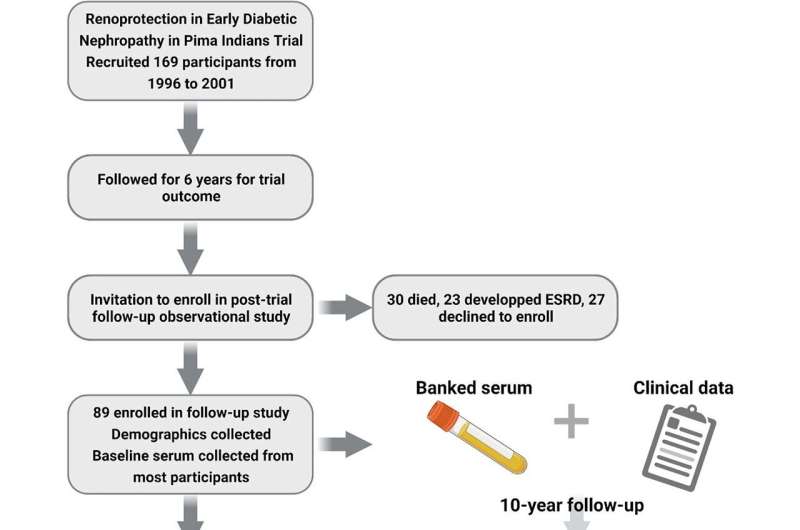
Of the 37 million Americans with diabetes, up to 50% may end up with nerve damage, or diabetic neuropathy, that can be painful and disabling.
While some medications can reduce pain, scientists continue searching for factors that cause patients to develop diabetic neuropathy—to identify ways to reduce the risk of harmful symptoms.
One study at Michigan Medicine finds multiple lipid biomarkers are linked to the development of neuropathy in patients with type 2 diabetes.
Researchers examined serum samples from nearly 70 members of the Gila River Indian community with type 2 diabetes who were tested for neuropathy 10 years later. They analyzed 435 different species of lipids, which are organic compounds composed of fats and oils.
Results published in the Annals of Clinical and Translational Neurology reveal that participants with high scores for diabetic neuropathy had changes in lipids reflecting impaired energy metabolism.
“We have the potential to test for these lipid biomarkers in patients with type 2 diabetes to identify those with the highest risk of developing peripheral neuropathy and facilitate more focused management of those patients,” said senior author Eva L. Feldman, M.D., Ph.D., James W. Albers Distinguished Professor at U-M and the Russell N. DeJong Professor of Neurology and director of the NeuroNetwork for Emerging Therapies at Michigan Medicine.
While there were differences between basic lipid profiles of participants with and without neuropathy, researchers found a pattern in blood lipid profiles 10 years prior to a person developing neuropathy that showed signaling dysfunction in a critical pathway called b-oxidation. This pathway converts lipids into sources of nerve energy, and, when impaired, energy-starved nerves undergo damage, leading to neuropathy.
“As we learn more about the relationship between serum lipid species and neuropathy, it will open up the possibility of targeted therapeutic treatment, both with drugs and lifestyle interventions,” Feldman said. “Our findings support the concept that unsaturated healthy fats are a better source of energy for nerves that highly saturated fats. We strongly recommend a Mediterranean-type diet to maintain a healthy nervous system.”
Feldman also advocates exercise, which increases the efficiency of the b-oxidation pathway. “Engaging in a healthy diet and exercise program is the key to preventing neuropathy,” she said.
Noah Fromson, University of Michigan

